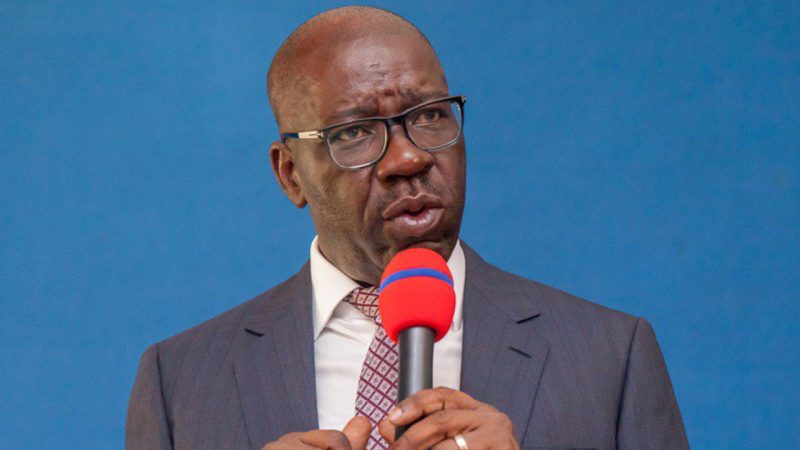Governor Godwin Obaseki of Edo State expressed shock as President Muhammadu Buhari government printed and shared additional N60 billion to 36 states in March this year despite Nigeria’s huge indebtedness.
Obaseki who raised the alarm last Wednesday during a meeting with the Transition Committee members at the Government House in Benin City, the Edo State capital said the money the country has borrowed would be in excess of N15 to N16 trillion by the end of 2021.
He expressed fear that Nigeria will experience hyperinflation like Argentina, saying the situation is more critical now because of the huge amount borrowed to service the ailing economy.
Nigeria, according to him, is like a country borrowing and borrowing without any means to pay back because oil is no longer bringing in much revenue like before.
He noted that the major oil giants like Chevron and Shell no longer invest so much oil as was obtainable in the past.
The governor, being an investment banker, explained that Chevron is now one of the world’s investors in alternative fuel, adding that Shell intends to pull out of Nigeria.
“In another year or so, where will we find this money that we go to Abuja to share every month? Last month, we got FAAC for March. The Federal Government printed an additional ₦50 to ₦60 billion to top-up for us to share,” he said.
“We say remove subsidy, they say no. This April, next week again, we will go to Abuja and share. By the end of this year, the total borrowing is going to be in excess of ₦15 to ₦16 trillion.
“My worry is that we will wake up one day like Argentina, the naira will be ₦1,000, ₦2,000 and will be moving because we don’t have money coming in. You are just borrowing, borrowing and borrowing without any means or idea of how to pay back.”
Obaseki also spoke about the 2023 general elections, noting that politicians whose aim is to buy votes during the polls might find it tough doing so.
He backed the Independent National Electoral Commission (INEC) on the deployment of technology to track and monitor elections in the country.
“INEC itself had also begun its own process of change. They have been worried, scandalised by what happened in Kogi and Bayelsa and were trying to redeem themselves.
“So using technology, they made sure that as soon as you finish voting in the polling unit, that result was uploaded straight into a portal so they can see the pattern which makes it difficult to change results at the collation centers.
“That was what helped us. So any candidate or political party that does not see this and expects that we will do business as we used to do before, we are taking a huge risk.”


